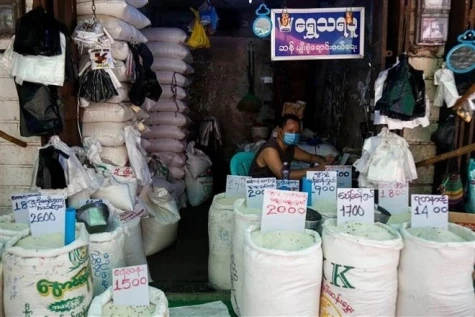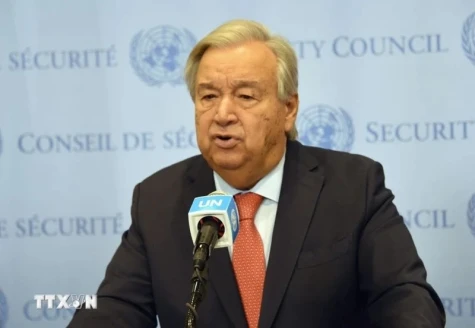Ahead of the annual Spring Meetings of the International Monetary Fund (IMF) and the World Bank in Washington, D.C., the IMF has released its World Economic Outlook report, revealing that the number of migrants and refugees globally has nearly doubled over the past 30 years, causing social instability in many countries. However, the IMF suggests that effective refugee management can bring significant economic benefits to host countries.

Currently, the global number of migrants and refugees stands at 304 million. The IMF report notes that nearly 40% of migrants and 75% of refugees reside in emerging markets and developing economies. Alarmingly, almost 9,000 people have died globally in 2024.
Ugochi Daniels, Deputy Director General of the International Organisation for Migration (IOM), stressed that these tragic deaths are preventable. According to the IOM, the actual number of migrant deaths and disappearances is likely much higher due to underreporting, especially for undocumented individuals. Asia, Africa, and Europe have all recorded record numbers of migrant deaths in 2024.
According to the IOM, the Mediterranean route from North Africa to Italy is considered the most dangerous for migrants. Nearly 22,000 people, including around 3,500 children, have died or gone missing on this route over the past 10 years. UNICEF estimates that 8 out of 10 children and adolescents travelling this central Mediterranean route suffer from exploitation, including violence, abuse, sexual exploitation, forced labour, child marriage, and detention. Many are denied even their most basic rights as children due to migration.
This reality demands stronger international cooperation to curb illegal migration. In Italy, Prime Minister Giorgia Meloni’s government has reached agreements with Tunisia and Libya—two countries with high migration flows to Italy—whereby Italy provides financial support in return for cooperation in curbing illegal migration. According to Italy’s Ministry of the Interior, 11,805 migrants arrived on its shores in the first quarter of this year, including 1,588 unaccompanied teenagers.
The IMF warns that changes in migration and asylum policies can significantly impact not only migrants but also host economies. Although migrants currently make up only about 2% of the population in developed countries, they can pose short-term challenges, especially when labour market integration is difficult or there are significant skill gaps. Nonetheless, the IMF emphasises that in the long term, well-managed migration and refugee integration can yield substantial socio-economic benefits.
Germany is cited as a successful example of migration management. The current German government focuses on increasing skilled labour migration, tightening controls on illegal migration, and taking strong action against human trafficking.
Federal Interior Minister Nancy Faeser noted that since 2021, skilled labour immigration to Germany has risen by 77%. Over the past two years, the number of refugees has dropped by 50%, deportations have increased by 55%, and 50,000 individuals have been denied entry through domestic border control. The German government has expanded integration courses for immigrants, with participation rising 2.5 times compared to 2021.
Germany has enacted the Skilled Immigration Act to facilitate the entry of skilled foreign workers. It has also comprehensively reformed its nationality law, allowing long-term skilled immigrants who have integrated into society to obtain permanent residence and citizenship.
Illegal migration often stems from deep-rooted causes such as poverty, armed conflict, and ethnic tensions. However, with appropriate migration policies, countries can transform migrants into a driving force for socio-economic development. To address migration at its roots, the international community must step up cooperation to eradicate poverty, promote economic growth, and ensure peace and stability in developing nations.
NDO






























